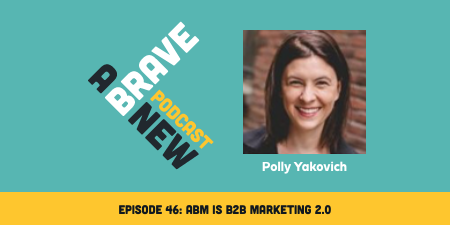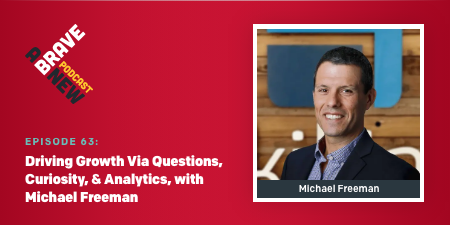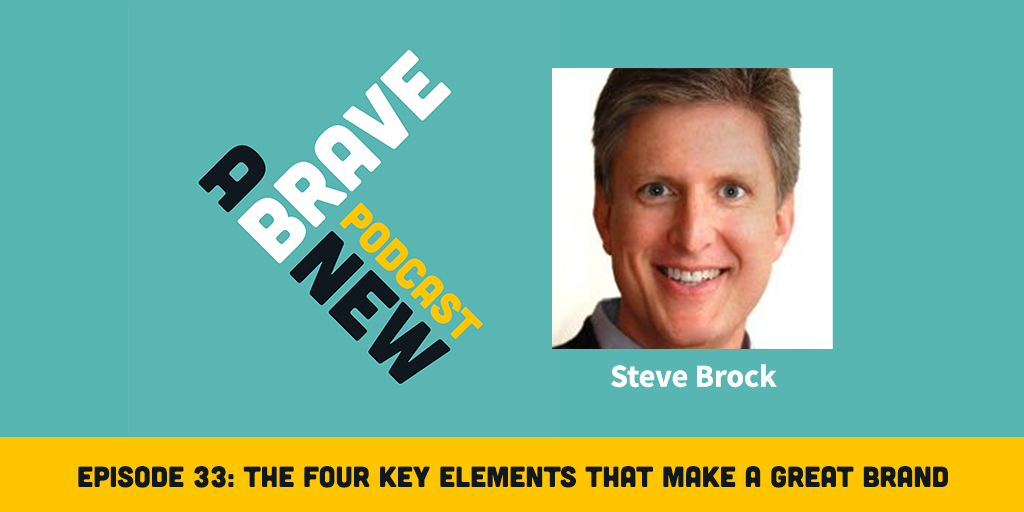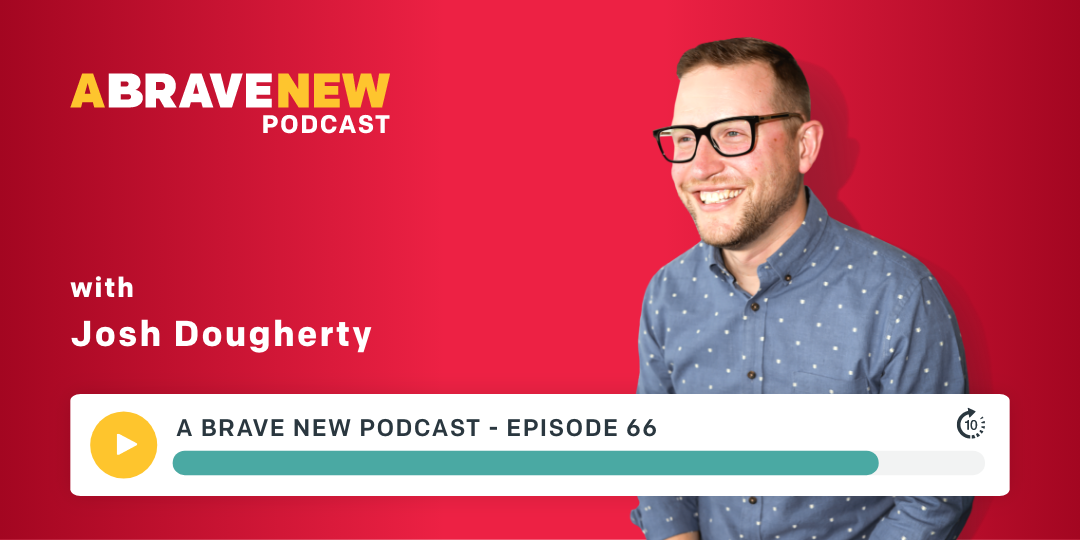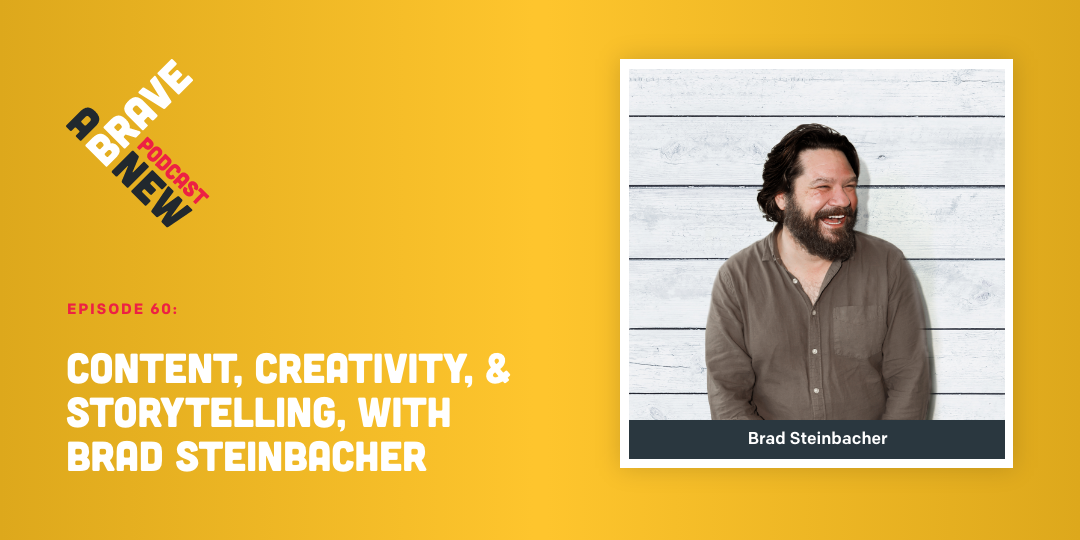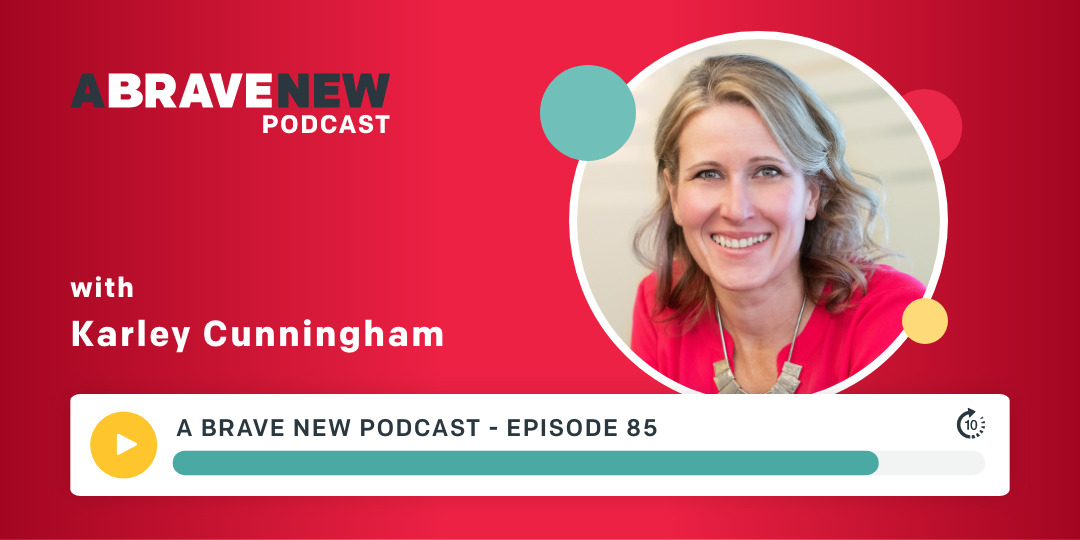Redapt is the company behind many technology industry unicorns’ global data center infrastructure deployments. Redapt works with hundreds of SaaS, Public Cloud Providers, and Web Scale companies to solve their technology deployment challenges.
Redapt also provides cloud adoption services to those who want to accelerate the use of cloud services and the development of modern applications. Their cloud team has performed hundreds of complex application migrations, DevOps engineering engagements, and app development projects.
What you’ll learn about in this episode:
- How David first got into technology during a gap year in college, and why he, his brother and another family member decided to become entrepreneurs
- Why David believes that co-founding a business with someone else requires not always agreeing with each other and bringing unique perspectives
- Why a strong company culture has been the key to retaining employees in an industry with notoriously rapid turnover
- How Redapt's culture has evolved over time as the business has grown, and why David has become more intentional in developing the culture
- What key struggles and roadblocks Redapt has had to overcome over its growth, and why nimbleness and a willingness to pivot have been key
- How Redapt has developed strong partnerships that have generated new opportunities for the organization
- How David addresses difficult-to-discuss situations like Black Lives Matter, and why authenticity and vulnerability have never been more important
- How cloud computing has become a core component of Redapt's business model, and what lessons the team learned by acquiring another company specializing in the space
- What key lesson David wishes he had learned earlier in his career about leadership, control, and a growth mindset
Additional resources:
- Website: www.redapt.com
- Linkedin: www.linkedin.com/in/Davecantu/
- Email: Davidc@redapt.com
Show Transcription:
Intro:
Welcome to A Brave New Podcast. The podcast, all about how brave entrepreneurial companies are unlocking their business potential. Using inbound marketing here is your marketing expert and host Polly Yakovich.
Polly Yakovich:
Welcome back to A Brave New Podcast. I'm super excited to have Dave Cantu as my guest today. David is the co-founder and CMO of Redapt, which is a technology company that works with clients all the way from bare metal to cloud consulting. I'm going to let him tell you more about what they do, but welcome to the podcast Dave, thanks for coming.
Dave Cantu:
Yeah. Well thank you for having me.
Polly Yakovich:
I want to talk to you about this crazy entrepreneurial journey that you have been on since you were a really young man, but will you just give us sort of the high level, how Redapt started? I didn't mention that you co-founded it and are still in business with your brother, which is kind of an insane miracle for anyone who has any sibling.
Dave Cantu:
Yeah. We'll get to the...
Polly Yakovich:
The in depth therapy sessions.
Dave Cantu:
Yeah. When I was about 25, I had taken a break for my senior year at college, came home and began working at a technology company. That was a long time ago, almost 25 years ago. So you can imagine technology's changed a lot, but it was at a time when a formeg piece of memory was maybe like $10,000, $12,000. So when those components failed, you didn't throw them in the trash can or recycled them. You actually repaired them.
So the company that I was at was primarily involved in fixing these components for large enterprise companies and returning them to their parts depots so that they could maintain all equipment. It was a great business.
My uncle actually had owned it for awhile, having one more entrepreneur in the family. And I think just before I started working there as a receptionist, the business sold to a larger organization that was rolling up similar companies across the globe. What happened there is the company was rolling up companies. I was there about a year. I had worked my way from being receptionist to sales and had my own accounts and stuff, which was super fun. And the parent company actually just ran out of money and laid off every internal organization. So I found myself in a situation where I was living in my mom's basement.
I didn't have a job. And my brother and another family member kind of looked at each other and thought I think we can give this a go. So we really, with about a thousand dollars of capital started working out of the basement of a home and very quickly started having success. We've actually... one of the things that I'm proud of in terms of company performance is we've been profitable every single year of business, so for the last 25 years.
Polly Yakovich:
That's amazing.
Dave Cantu:
So it really was quite a rocket ship from the start. When you're talking about a couple of people that need nothing, we just kept rolling our earnings back into the company and continue to grow.
Polly Yakovich:
Yeah. Talk to me a little bit as co founders and brothers, what have you learned about that co-founding relationship? It's so complicated when it's your sibling, but I think some of the same principles are true regardless of whether you're related or not.
Dave Cantu:
Yeah. You know, I think when it comes to co founders, you want to choose someone, you don't... You shouldn't agree on everything. If you really do agree on everything, then you don't need each other because you make the same decisions regardless. So my brother and I, we grew up together, but most siblings are very different and Rick and I are very different. I'm actually the more risk averse one, believe it or not. So...
Polly Yakovich:
Well, I actually, that surprises me.
Dave Cantu:
Yeah. Well, I mean, I'm not at the opposite end of the spectrum, more risk averse than he is. And you know, Rick's always been the one leading the charge and really kind of wanting to grow where I'm like, "I want to really think about this and overanalyze it." And so, we do bring very different perspectives.
And then I think what's also created some strength though, is that we're both really big believers that we'd rather be friends and family then be right. And so we always take that home. And I think it's fun for other people in our organization, our leadership to be in a room when Rick and I are discussing something and the brother stuff will come out and we kind of probably don't act appropriate sometimes. But we won't... We don't fight, but we'll have a disagreement and maybe not reach an area where we can move forward in a meeting.
And then five minutes later, I'll go over to his office and like, "Hey man, do you want to go get lunch or coffee?" And it's like, yeah. And then we'll sort things out, we're really close.
Polly Yakovich:
I kind of feel like as somebody who has a co-founding relationship with my business partner, Josh, I feel like if you're in a healthy sibling relationship, which obviously still means that you're going to have arguments and have to like work stuff out... but you kind of come to the co-founding relationship with like, 25 years of skills of working something out with somebody in a real way that would really be beneficial to your business. You have that foundation of like, "We are friends and family, and we're going to preserve that."
I think for me and my co-founding journey, it's all net positive, but at the same time, when Josh and I started this company, we didn't really know what that would look like. We didn't think like, "Oh, five, six years from now, we're like very much connected and what that means. And are we friends outside of work or do we maintain a relationship inside of work?" Or how that works. So in some ways I feel a little bit jealous. I think it'd be easier to work those things out with my sister or brother, because we already have years of working those kinds of conflicts.
Dave Cantu:
Yeah. You know, I think what we're talking about is really the same thing. And I do quite a bit of just personal development and reading. And the book that I'm reading right now called Principles by Ray Dalio. He talks about the culture that a company has, that high performing companies have. And it's really about being able to have very open-minded fact finding conversations.
And the people in our organization, I think what I've learned is, this is how we've innately run our business and hired talent. You're looking for people that have a whole bunch of different points of view. But at the end of the day, the binding kind of a character that your great employees have is an ability to have long lasting, meaningful relationships regardless of conflict. And that's kind of what you're talking about is, someone that's going to stay married for 65 years, right? Someone that can stick with family, beside family members or beside their friends, regardless of situations, and work through it and maintain healthy relationships.
Polly Yakovich:
I feel like you all have done a better job of that than most organizations, I see. I would say for me, as an outsider, looking in, you have employees that have worked with you and in your leadership team for 10, 20 years.
Dave Cantu:
Yeah. We have, in technology, I think the average tenure of an employee is about three years and that would be on the high side. We have several employees that have been with us pretty much right out of college. And we have people that are getting 20 and 20 year plus anniversaries.
Polly Yakovich:
How do you, I mean, you mentioned one component of it, but how intentional were you about this culture that... Or did you just instinctively look for employees that were committed in that way to resolving conflict and each other?
Dave Cantu:
No, I got to be honest. We've... I've hired a lot of unemployable friends. We've made a lot of mistakes along the way. It's what we were looking for people, where we had the foundation of those long lasting relationships. I have a friend that joined me, [inaudible] he just had his five year anniversary, but we've been friends since junior high. And he went on to have a very successful career as a goalkeeper in the EPL. He came home and played around a little bit and then really figured out that part of his happiness is being a part of a team. He chose to work on Redapt's team. So it's really, yeah. You do find those people that are really good at building long lasting relationships and openly sharing their opinions and magic happens.
Polly Yakovich:
Yeah. I agree. How intentional were you about your culture? I'm sure at first it was sort of like you said, hiring friends and happenstance, but how have you developed an intentional culture as the company grew?
Dave Cantu:
That's another area where there's been a tremendous amount of growth. If you can imagine how a 25 year old person would run a company versus a 50 year old person. It evolves over time, right? And so, we've grown from being very, I would say, "Work hard, play hard, have a lot of fun together" to "Oh my gosh, I have kids and I'm starting to kind of see things much differently than I did when I was 25." So I think we've been more intentional about our culture probably in the last 15 years. Where before it was, you're just very different as a young man, you're kind of focused on very different things.
Polly Yakovich:
Yeah. Talk to me a little bit about, as you look back on your entrepreneurial journey, what were some of the turning points for you? Are there a couple moments that come to mind as you think about like, "Wow, that was a really big moment and we made the right choice or the wrong choice."
Dave Cantu:
Yeah. There's some pretty big pivots in what our business actually is.
Polly Yakovich:
Yeah, I would imagine.
Dave Cantu:
And those pivots started... they happened when we started to think less tactically and more strategically. So there was a point in our company where we initially started out and we were selling refurbished hardware and it was a Wild West kind of gold rush mentality. We really focused a lot on customer service and differentiating our business. With very high touch service in what I would consider really a mature market now. But I think back then it was a lot of "mom and pop" or smaller type shops. So a high touch customer service. But we sold on price and availability, right? I can get it to you for this price tomorrow.
That market changed. The OEMs did not like that that market existed. And so they created a new licensing and property transfer rules that prohibited us from doing business. So we had to transition to working with the OEMs and we made that transition, but we didn't change how we sold. We still tried to sell on price and availability. And that was a recipe for disaster. So we quickly realized that we had to provide our customers with a lot more value in different ways. And that was kind of our journey into engineering services, solving more complex technical issues for customers and still keeping that same brand and customer service.
Polly Yakovich:
Do you think that that's been the key to still being here 25 years later and having been able to pivot so many times? Is that customer service thread, that is relationship oriented for you and sort of pulls you through?
Dave Cantu:
Yeah, absolutely. And I think because of that, the brand of the customer servicing, how we treated our customers... When they were no longer interested in buying what we were selling or the business that they're in, they actually guided us to building things that they could buy and they wanted to buy from us.
So, that was kind of going to be my next point. At some point we had a customer that was a very large provider of online games and they were moving off of Cloud. This is a long time ago. This is when Cloud was pretty darn expensive. And so we actually... they told us what they wanted. They wanted to deploy data center infrastructure at a scale that had really not been done before. And so we built our systems integration services based on that opportunity and that feedback. And we've just been lucky that that story has resonated with a lot of other hyper scale companies and enterprises that don't want to solve that. That challenging more and leverage a partner to do that.
Polly Yakovich:
Yeah. So as you were talking, I was thinking that words like "relationship" and "authenticity" are sort of buzzwords. And I feel like in this environment that we're in now, particularly we're all remote because of COVID. Everyone's like, "Do we come back to the office? Is our work going to be more remote?" But I can't help, but think there's still this human relationship trust element that I just feel no matter how advanced technology gets and no matter where we are, I just don't see that going away. What do you think? That people are still making decisions based on like, "I trust you to do the right thing for me?" Or how does that relationship part...
Dave Cantu:
Yeah, with your customer relationship? So I think a little bit of that human to human relationship really depends on the size of the transaction. Right, so I think that for every person that threshold of what kind of relationship do you want to have, is different. For a car, for instance, that's when I don't want to have a relationship with my car salesperson.
Polly Yakovich:
Yeah. A hundred percent. This is a great point. Yeah.
Dave Cantu:
Yeah. The dealership, it could be the worst dealership in the world, but if it's closest to me, it's probably the one I want to apply for some of their service, right? But I think in our case where people are making buying decisions that impacts their company's service and the service they deliver, if that exceeds the expectations of the standards of the company that shows extremely positive on their career. And if we don't meet those, that could really damage our customer's career. So they may really want to get to know us and be assured that we're going to stand behind the project and that we're going to help be successful.
And in that personal relationship for us, when we do that and successfully, it's interesting to see how it grows. So we've had companies that have flourished and our partnership has been a part of that. And then maybe the talent in that company leaves and they go elsewhere. And one of the first things they do is call us, figure out how we can work together, because we have a good track record. We have good rapport.
Polly Yakovich:
And you make them look good or successful. I think the other thing, when you're talking about, it's such a good point that you brought up about the size of the purchase and maybe even sort of the business opportunity or risk... But when you're talking about really high value B-to-B products or services, those decisions always come with some risk. And so you want to know that the people behind them are going to be there for you, have your back, fix it, even if unexpected things come up, regardless of what that is.
Dave Cantu:
Yeah. And I think just beyond that now, people want to know that the ownership of the organization or what that organization is about is aligned with their house. So it's getting really serious. You better be good people.
Polly Yakovich: I really welcome that. I think it's so important. I think it's been needed for a long time, but I really liked that people are choosing to vote that way with their dollars.
Dave Cantu:
I do too. And what's really interesting is I've kind of grown up where you let your actions speak louder than your words, but we had a company.... we've been doing... Everyone's remote. So we've been doing weekly half hour company updates and Q&A sessions. Yesterday, it was really interesting because there's the BLM movement and a lot of unrest and uncertainty in the world right now. And employees were asking us, what are you doing to support BLM? And what was interesting is, our answer was, this has been a part of our DNA since day one, Rick and I, we're involved in a number of organizations. The schools that our kids go to, we chose them because of the focus on diversity and helping the community.
But it's just not something we pound our chest about. It's just part of our DNA, but it made me realize that I have to go against my person and I don't want to...I don't know. It's interesting because I don't want to boast about the stuff that we do because to me, it takes away "the why" I'm doing it. Because I'm not doing it for me. I'm doing it for the community and for things that I deeply believe in. And I don't want anyone patting me on the back because I'm doing what's right.
Polly Yakovich:
Right. I've been really thinking about this recently with BLM and everything that's been happening too. I'm younger in my entrepreneurial journey than you. And there's this very interesting culture about how much of yourself you bring to work, right? Are you sort of more professional and less personal at work and keeping it sort of at a different level and then obviously in your personal life?
And not that those should disagree, but I kind of was brought up in this, "don't share too much about yourself at work" culture. But then as an owner, it sort of like, "where's this boundary between, this is a company and it's important that the company values match my values and that I use the company in some way to further my values." How do you deal with that authentic-ness at work? And that question that your employees brought up yesterday, how do you fuse your DNA into your company culture? Is it important for employees to know where you're giving and what you care about? You know, I know there's no answer, but like...
Dave Cantu:
Well, it's interesting because our company used to stay pretty... well, completely politically neutral. And with BLM if you're neutral, you're on the wrong side of it.
Polly Yakovich:
A hundred percent.
Dave Cantu:
So we can't be neutral anymore. We can't play it safe, right? So we have to kind of speak out for what we believe in.
Polly Yakovich:
Yeah. I mean it's a human rights... It's a life issue.
Dave Cantu:
Yeah. And I would say in terms of how I interact with the organization as a leader, I kind of played both sides of... I try to act like I think a leader should act and lead by example, but when you get opportunities to be vulnerable, I think that's extremely important. And so yesterday's all-company meeting was an example of that, of like, "Hey, this is in my DNA, already. I just don't brag about it. I don't blog or post about it."
Polly Yakovich:
Yeah. I think there's something really beautiful about that. And obviously the question coming from your employees sort of solves the "do I need to let people know where I stand" because they want to know. And so you can respond to them telling you, "we want more of this information."
Dave Cantu:
Yeah. I think what was really cool is we weren't attacked, so diversity's hard, right? It is hard. But we do focus on that. And I think we can always do better, but I think we do, okay. And we just had so many people stress that they really wanted to use their volunteer days to do something. Our people are extremely passionate about making a difference, or 100% supportive of doing that.
Polly Yakovich:
I love it. So broadly, what would you say value wise has really come up for you over the last few years that maybe you didn't have when you started? What values have become really important for you that your company embraces? Is it this value of diversity? Are there any other things that have really emerged for you as a leader?
Dave Cantu:
Yeah, I think first of all, we want to have an environment that is inclusive of everyone. We want people to be safe. We want them to be not afraid to make mistakes. Mistakes are great, but not learning from that is unacceptable, right? So we're pretty upfront about that. So we do.
One of the things I really like is we're a very flat organization. So anyone can come into my office, stop me in the hall and share things. I love when people identify problems or things that we can improve on. But another area of what's not acceptable is just pointing things out and not offering a solution. So we have a lot of just extremely innovative people here that are passionate about building a better machine. Month over month, year over year. It's pretty incredible. The progress that we're making.
Polly Yakovich:
Yeah. So just to pivot a little bit, a couple of years ago, you made a business decision... and maybe you've made this before, and I just don't know about it... but I think a lot of businesses are really grappling with this. Like "how can I grow into other service areas or do I acquire a company that allows me to sort of gain some of this functionality without building it myself?" So you acquired a company a couple of years ago. Have you done that before? Or was that the first time?
Dave Cantu:
We have bought another company before for a very kind of specific... It was a small kind of transaction. The company that we bought, the cloud engineering services company that we bought, it was strategic. So our traditional business is reselling data center infrastructure. Well, there's this thing called Cloud, apparently.
Polly Yakovich:
Yeah, I've heard of it.
Dave Cantu:
I've heard it's a big deal.
Polly Yakovich:
And there's like many of them. They're everywhere.
Dave Cantu:
So organically, our organization started a cloud engineering services group and it was really a challenge to bring in people with the right talent that would match up with the work our customers wanted us to do for them. So...
Polly Yakovich:
So you sort of had the demand from your customer base already?
Dave Cantu:
We had the demand, we had the talent to do half of the projects that were coming our way or the work that needed to be done, but there always just seemed to be some niche piece of expertise or technology that we didn't have. And so we sought to buy a company that was larger in scale, and that would alleviate 80% of those challenges that we were facing. So we found a company that was in the cloud engineering services business. They were a little stagnant in growth, just kind of due to capitalization. And so it was a really good fit to bring our organizations together and start kind of a new growth trajectory.
Polly Yakovich:
Yeah. So for a value based, very tight knit culture, like you've just described, how do you then... because this is, I think the second fear of people who are looking at their business and saying like, "do I buy, do I acq-hire, do I do all these things?" But then also, is it going to kill my culture? Right? How do you incorporate people and maintain those values and even maybe blend them in a better, in a best case scenario.
Dave Cantu:
Yeah. And we learned lessons along the way. We're going to continue to acquire companies. And the next time we do... we actually used the consultancy kind of later on as almost a marriage counselor to some degree to really kind of get things on the rails and, and finalize the integration. I think moving forward, I would use an M&A, or I would use an integration consultant to kind of smooth out the process from day one and keep things moving in the same direction. Right direction.
Polly Yakovich:
What other lessons did you learn from that experience that you would do differently or that you would advise somebody who's considering this? Because I think a lot of us are also looking at this economy and being like, "Okay, who's going to make it? Are there people or entire companies that are great additions to my business that are going to maybe struggle for different reasons?" It seems like kind of a timely... conversation.
Dave Cantu:
Yeah, I mean, we learned so many lessons through the integration. I do think that upfront is having a plan and end goal in mind and being very clear about that with everyone in the organization is super important. I think even if the people in the acquired company, even if they're a little bit unsure or not completely aligned with the vision. If they know and you stick to that, you'll have the right people kind of endure that period.
Polly Yakovich:
Well, and build that trust with them too. By following through on your promises.
Dave Cantu:
Yeah. We definitely, we tiptoed around issues because we were nervous that people would leave the organization and now that the integration is done and we're communicating weekly with everyone... People are aware of what's going on in the company. They know how we're performing financially. They're able to ask, if the brave ones are able to ask questions that probably most people want to know... And it's really kind of helped bring the organization together. And in fact, once we started doing that, we literally just saw our performance just take out the hockey stick.
Polly Yakovich:
That's amazing.
Dave Cantu:
Yeah.
Polly Yakovich:
I feel like I learned this lesson over and over in my career and I'm kind of wanting to stop learning it and actually just keep doing the right thing. But I feel like I often want to be nice. And so I don't say the just honest, "This is where we're going. This is what I believe. This is what we think this is... Whatever." And then the nice doesn't ever really work because it's not totally authentic. And if you have a different vision in your mind, you're sort of tiptoeing people along when you could have just been like, "Hey, this is where we're going come along or don't. We have a vision." I feel like in that desire to be nice, you're less bold. And people really want the honest truth.
Dave Cantu:
Yeah. And people are smart.
Polly Yakovich:
Especially your people, they are very smart.
Dave Cantu:
There's another book that I read called Blink.
Polly Yakovich:
Oh yeah, it's a great book.
Dave Cantu:
It's really about how every human has this built in lie detector. You know when someone is not telling you the truth and we spend a lot of time rationalizing why our instincts are wrong, but when what you're saying, isn't aligned with how you're acting. It's not a good recipe for employees feeling comfortable and safe.
Polly Yakovich:
Right. So as you look back, let's just say over the last 25 years, what is... And knowing that a lot of the mistakes you made benefited you actually, because you had to learn from them and you had to grow and you were young and all of that... But what is one thing that you wish you knew earlier, or you would have done differently? For like a younger entrepreneur, what's one thing that you're like, "if you could get here quicker, it would benefit you"?
Dave Cantu:
Yeah. Earlier on my brother and I were very concerned with being in control, right? So we were reluctant to bring on other qualified leadership to do things that could have been done much better. So I think adopting a growth mindset earlier instead of how much profit can we produce, I think we could be a billion dollar company today with just a few different hires.
Polly Yakovich:
Yeah. Okay. That's really interesting. I do feel like too, depending on how old you are and wherever you are in your journey, sometimes there's an insecurity that you have to have done it first, or you have to do it yourself to earn the fact that you're the one in a position of leadership. And the more that you relinquish that and just let other smart people do it, the more you can extend your opportunity.
Dave Cantu:
Absolutely.
Polly Yakovich:
Well, that is about it for me. I always ask somebody a final question, but before I do, I'm really curious... As we've been talking, is there anything else on your mind that you would really... I mean a lot of people that we work with and that listen to this podcast are entrepreneurs, is there any sort of advice you would give that we didn't cover?
Dave Cantu:
Well, one is, I love helping other entrepreneurs. So if you want to get in contact with me, please do so.
Polly Yakovich:
That's a really awesome offer. [crosstalk 00:34:44].
I will be taking you up on that offer, just kidding!
Dave Cantu:
With that said, I think as an entrepreneur, I'm a big believer in that you are the sum of the people you surround yourself with. So it's really important that you seek out other entrepreneurs and just not any entrepreneurs, it's people that are doing it right. That are good people. They're making the right decision regardless of the outcome. People that you look up to.
I think another part of that is, if you look around and you're the smartest person in the room, find another room. You got to surround yourself with people that are smarter than you.
Polly Yakovich:
That's great advice. It's also never happened to me, but...
Dave Cantu:
No, you're brilliant!
Polly Yakovich:
Yeah. No, I've never been the smartest person in the room is what I was trying to say. Like, not once.
So I always ask people this, and I love this question. I stole this from a researcher friend of mine, but she has always on her, her qualitative questions... What is your superpower? What do you consider your superpower? What makes you uniquely gifted?
Dave Cantu:
Empathy?
Polly Yakovich:
That's a great one.
Dave Cantu:
I've always found it pretty easy to try and put myself in another person's shoes. And if they're in the room, I try to ask questions so that I can kind of understand where they're coming from. You mix envy and I think a little bit of patience or reserve, in making decisions. Generally, when people feel heard and understood, you can make so much more progress together.
Polly Yakovich:
That's amazing. Well, you heard him offer, that he is happy to get in touch with anyone. So I would take him up on that word. If people want to find you, how can they get ahold of you? How can they read what you're saying? See what you're up to.
Dave Cantu:
Yeah well again, I don't put a lot of stuff into the internet world. But connect with me via LinkedIn, or just email me at davidc@redapt.com.
Polly Yakovich:
That's great.
Dave Cantu:
I'll get back to you.
Polly Yakovich:
Thank you so much. That's such a nice offer and we'll put those in the show notes as well.
Dave Cantu:
Awesome.
Polly Yakovich:
Thank you so much for coming on. This has been so helpful. I really appreciate your insight and experience.
Dave Cantu:
Thank you, Polly. I appreciate the opportunity.
Polly Yakovich:
Yeah.
Dave Cantu:
Bye.
Outro:
Thanks for listening to this episode of A Brave New Podcast, go to abravenew.com for more resources and advice. If you enjoyed this episode, show us some love by subscribing, rating, and reviewing A Brave New podcast, wherever you listen to your podcasts.
Similar Articles
OCT 11, 2021

The Beginner’s Guide to Generating Inbound Leads
Marketing doesn’t have to be painfully intrusive, like getting yet another telemarketing call right when you sit down to dinner with your family.
OCT 11, 2021

The Beginner’s Guide to Generating Inbound Leads
Marketing doesn’t have to be painfully intrusive, like getting yet another telemarketing call right when you sit down to dinner with your family.

